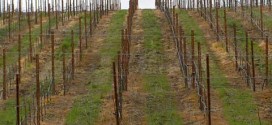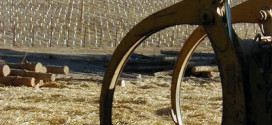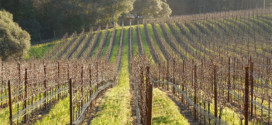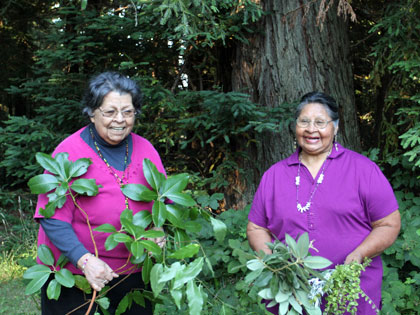
Violet Parrish Chappell and Vivian Parrish Wilder
Where we used to live, no one can see anything now. It is time we open our mouths. Those vineyard people are interfering with our ancestors’ area.
Wherever our villages were, wherever we picked our food, those places are blessed places. When we had to live in two worlds, we had to get along with people we did not know. We had to live with white men who took the land away. We coped with it.
Mom taught us good things, how to get along with different races of people. She taught us how to get along in the world. She told us, “You are going to go out and educate others about us.” We don’t think that others will ever completely learn about the spiritual part of an Indian. That is deep. But we want to explain why it is important to Kashia Pomo.
That patch over there — Artesa land in Annapolis — that is a blessed place for us. We went there as kids. We picked berries there with our mother. We picked berries for necklaces. There is another place over there where there is a lot of Manzanita, and that was really important to us. We made spoons from that and also awls to make baskets. These are the things we grew up with. We dedicated our trees not to be cut. The trees in the forest are blessed. The Redwoods give us good medicine from the sap that hardens. It was used for anemia. The young shoots are used for colds. Bark dolls are made from Redwood.
Everything out there is used for something.
The reason we are against the disturbance in Annapolis is that place is alive. It is a dedicated area. It is a special area. If they do something wrong there, things are not going to go right. Who will believe us? We are speaking from the viewpoint of Kashia. We have to talk from the viewpoint of our spiritual leader, what we were taught. The non-Indian may not understand — there are things that we Indians can’t touch but can see. Good teachings are spiritual.
We are disturbed by all the things that are happening around us. We can’t go to some beaches to harvest food, we can’t pick huckleberries any place we want. We can’t find good sedge to make baskets because the best place was ruined by Lake Sonoma. We know that there is sedge on that place over there. Baskets were our cooking pans and used to store things like acorns. That is important for kids to learn. It would be a good place to teach the kids how to make baskets.
Religion was all our life. We’ll tell you why. There were no man made conveniences here. Everything was from the creation. That is why we take care of it. That is what the leader did, she taught us to take care of the food, the water. We took care of the trees. They will disturb the places where we prayed. The spirits are still there. We say, gee, now they are going to disturb Indian land, dig up the guts of people. They are coming into our religious life.
The idea that these sacred places could be fenced off is not good. We don’t go for that. You don’t have to dig it up. We know that whole area is a village site. All these places were occupied and used by our people. The whole place is one.
It was not so bad when the land was used for sheep grazing, but here they are going to flatten the land — land which would be better used for education, where our children and neighbors can learn about our ancestors and their way of life.
It is a blessing to pick food. It is a blessing to roam around. The creator wants us to take care of this place.
Violet Parrish Chappell and Vivian Parrish Wilder are elders and scholars of the Pomo Kashia band. They are daughters of Essie Parrish, the renowned healer, basket maker and Kashia Pomo leader.
| This letter was published in the October, 2010 issue of the Sonoma County Gazette and in Wine Industry Insight |
For additional information, see:
 Pomo heritage threatened
Pomo heritage threatened
The Artesa vineyard project area is “very possibly the Kashaya Pomo village Kabatui” where “human remains may be present,” and which contains rich archaeological areas that are eligible for listing in the National Registry of Historic Places.
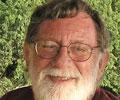 Erasing Native American history?
Erasing Native American history?
As an early morning mist filters through the Redwoods in the village of Annapolis in NW Sonoma County, a Pomo elder of the Kashia band walks through the forest toward an ancient settlement site…
 Desecration of Pomo history
Desecration of Pomo history
A first step toward satisfying the responsibility for Europeans and their descendants in North America would be to treat indigenous people with respect.
Artesa (“Fairfax”) vineyard conversion EIR
 CAL FIRE released the Final Environmental Impact Report (EIR) for Artesa Winery’s plan to clear-cut 154 acres of coastal redwood forest to plant a vineyard in Annapolis. The EIR states that the project will have no significant environmental or cultural impacts.
CAL FIRE released the Final Environmental Impact Report (EIR) for Artesa Winery’s plan to clear-cut 154 acres of coastal redwood forest to plant a vineyard in Annapolis. The EIR states that the project will have no significant environmental or cultural impacts.
 Friends of Gualala River Protecting the Gualala River watershed and the species living within it
Friends of Gualala River Protecting the Gualala River watershed and the species living within it
